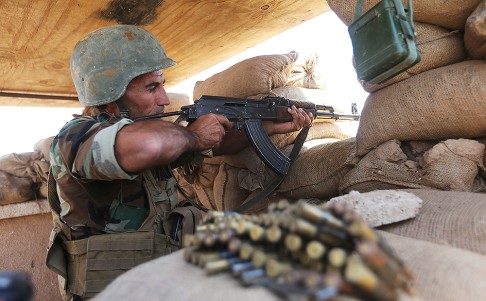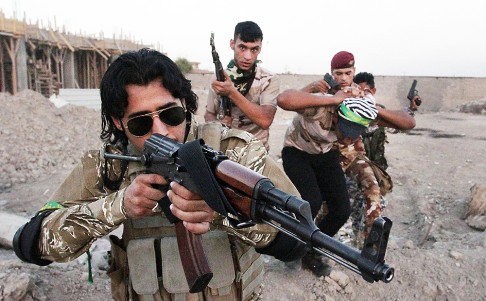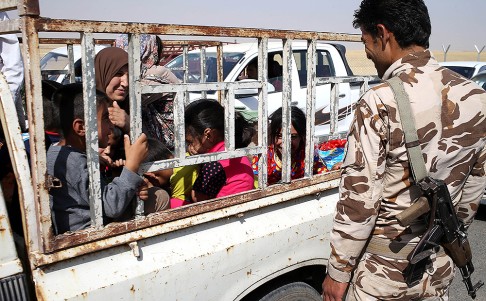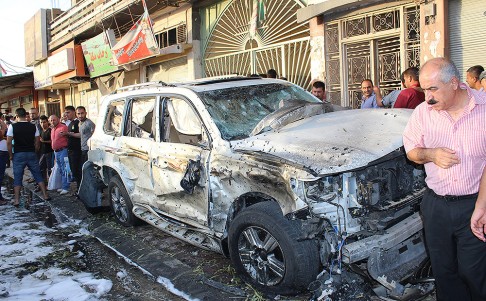Syrian bombing of ISIL extremists in Iraq complicates situation for Washington
Bombing by Assad's forces put him on side of US against Sunni Muslim extremists at a time when US seeks his removal from office

After taking a hands-off approach towards the Islamic State of Iraq and the Levant (ISIL) for several months, the government of Syrian President Bashar al-Assad has reversed course and launched air attacks against the Sunni Muslim extremist group inside both Syria and Iraq.
The policy shift complicates an already tangled situation for the Obama administration by effectively aligning Assad, whose ousting Washington is demanding, with the United States in the fight against ISIL, which is also known as Isis and was once part of al-Qaeda.
Who is coordinating the Syrian air attacks on ISIL targets inside Iraq is unclear. The state-run Syrian news agency denied that Syrian aircraft had bombed inside Iraq. But local Sunni tribes denounced the attacks, and White House spokesman Joshua Earnest said the administration has "no reason to dispute" the reports of Syrian air strikes in Iraq.
"The solution to the threat confronting Iraq is not the intervention of the Assad regime," Earnest said. "In fact, it's the Assad regime and the terrible violence they perpetrated against their own people that allowed [ISIL] to thrive in the first place."

"We expected this since the outset, as Assad is rewarding al-Maliki for sending him sectarian militias to fight alongside his forces to suppress the popular uprising," Nora al-Ameer, a vice- president of the Syrian Opposition Coalition, was quoted as saying in its daily newsletter.
The United States has so far declined to launch air strikes against ISIL, though Maliki has requested them.
The effectiveness of the Syrian air strikes remains uncertain.

But Assad's new focus on ISIL - which analysts say probably came at Iran's behest - carries potentially important political advantages for the Syrian leader, including putting his Iraqi counterpart, Maliki, in his debt.
As a result, Maliki may have to more closely coordinate the fight against ISIL with Syria.
Assad "is giving a hand to his ally, Maliki", said Abu al-Walid, an opposition activist contacted by telephone in Raqqa province.

Joining the drive against ISIL "could change his [Assad's] relationship with the international community", said Jessica Lewis, the research director of the Institute for the Study of War, a Washington research organisation.
Other experts said Assad's switch may be nothing more than a reaction to the mounting threat the group poses now ISIL has sent to Syria armoured vehicles, artillery and other war materiel it captured from the Shiite-dominated Iraqi army.
